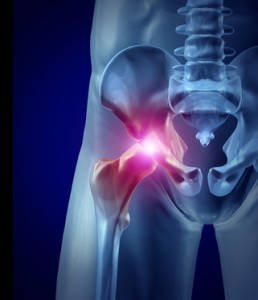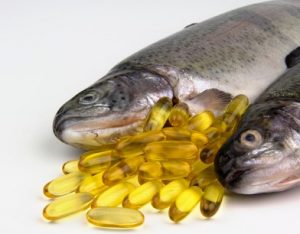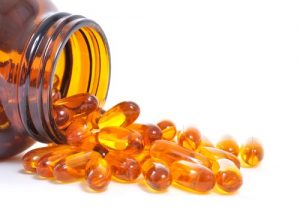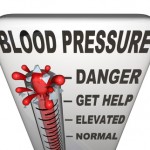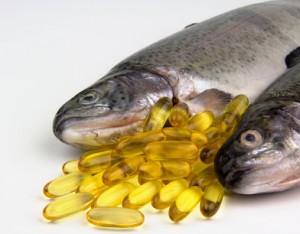Should You Supplement With Omega-3s?
Author: Dr. Stephen Chaney
 Do omega-3s reduce cognitive decline, or is this another nutrition myth?
Do omega-3s reduce cognitive decline, or is this another nutrition myth?
There is certainly good reason to believe that the long chain omega-3s EPA and DHA are good for brain health.
- DHA is an essential part of the membrane that coats our neurons. As such, it is a major component of our brains and plays an important role in its structural integrity.
- While EPA is not found in the brain it reduces inflammation and improves blood flow to the brain, both of which are important for brain health.
But the role of DHA and EPA in reducing cognitive decline remains controversial. Some studies strongly support their role in slowing cognitive decline while other studies find no effect.
So, the question remains, “Do omega-3s reduce cognitive decline or not?”
The study (B-Z Wei et al, American Journal of Clinical Nutrition, 117: 1096-1109, 2023) I will review today was designed to answer that question.
This study supports the hypothesis that omega-3s, especially DHA and EPA, reduce cognitive decline and Alzheimer’s disease. But it also raises several questions that need to be resolved by future studies.
Why Is The Effect Of Omega-3s On Cognitive Decline Controversial?
 Why is it so difficult to come up with definitive answers about whether omega-3s reduce cognitive decline? It is probably because the relationship between omega-3s and brain health is complex. For example:
Why is it so difficult to come up with definitive answers about whether omega-3s reduce cognitive decline? It is probably because the relationship between omega-3s and brain health is complex. For example:
- Because omega-3’s beneficial effects are widely publicized, many people are already consuming adequate amounts of omega-3s. A supplement study that does not measure the omega-3 status of participants at the beginning of the study and does not focus on participants with inadequate omega-3 status is doomed to failure.
- Omega-3s may benefit older people more than younger people. A study that is not large enough to measure the effect of omega-3s on both groups is doomed to failure.
- The APOE ɛ4 genotype is associated with an increased risk of cognitive decline and Alzheimer’s. Some studies suggest omega-3s are more beneficial for people with the APOE ɛ4 genotype, while other studies come to the opposite conclusion. This is a critical variable that needs to be resolved.
- The ability of DHA to cross the blood-brain barrier and accumulate in our brain may be influenced by our genetics, especially our APOE ɛ4 status, and adequate levels of other nutrients, especially B vitamins. Unless studies are large enough to separate out these variables, they are doomed to failure. This study suggests accumulation of DHA in the brain is a critical variable that needs to be resolved.
- Multiple studies suggest that higher doses of omega-3s are more effective at reducing cognitive decline than low doses of omega-3s. This study confirms that effect and identifies a threshold dose that is needed to provide measurable benefits. Studies providing supplemental omega-3s at doses below that threshold are likely to fail. And meta-analyses that combine low dose studies with high dose studies are also likely to come up empty.
- Finally, people who take omega-3s for years are likely to benefit more than those who take omega-3s for just a few months. Again, this study confirms that effect, which means that studies involving short-term supplementation with omega-3s are likely to fail. And meta-analyses that combine short-term and long-term studies are likely to come up empty.
With so many potential pitfalls, it is easy to understand why many studies come up empty, and the effect of omega-3s on cognitive decline remains controversial.
How Was This Study Done?
 This study consisted of two parts:
This study consisted of two parts:
Part 1 used data from the Alzheimer’s Disease Neuroimaging Initiative (ADNI). The ADNI study is a multicenter study designed to develop clinical, imaging, genetic, and biochemical markers for early detection and tracking of Alzheimer’s Disease.
Participants undergo standardized neuroimaging, psychological assessments, in-person interviews for medical history, and cognitive evaluations on entry into the study and at the end of the study.
This study followed a cohort of 1135 participants (average age = 73, 46% females) without dementia at entry into the study for 6 years.
Omega-3 supplement use was determined based on a questionnaire at the beginning of the study. Participants who used omega-3 supplements for over a year were considered omega-3 users. They were further divided into medium-term users (1-9 years) and long-term users (>10 years).
Alzheimer’s Disease was diagnosed by neurologists based on brain scans, cognitive scores, and the ability to live independently.
Part 2 was a meta-analysis of 31 studies with 103,651 participants. The studies included in the meta-analysis all:
- Measured the relationship of omega-3 intake with the risk of Alzheimer’s Disease, all-cause dementia, or cognitive decline.
- Were cohort studies (studies that follow a group of people over time) or case control studies (studies that compare people who develop a disease with those who do not).
- Provided risk estimates or data that could be used to calculate risk.
- Were original publications, not reviews or meta-analyses.
Do Omega-3s Reduce Cognitive Decline?
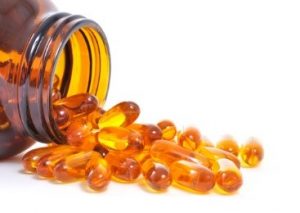 The results from Part 1 (data from the ADNI study) were as follows:
The results from Part 1 (data from the ADNI study) were as follows:
- Omega-3 supplement users had a 37% lower risk of developing Alzheimer’s Disease than non-users.
- Long-term (>10 years) omega-3 supplement users fared even better. They had a 64% lower risk of developing Alzheimer’s Disease than non-users.
- When they broke the results for long-term omega-3 supplement users into subgroups:
-
- Males (67% risk reduction) benefitted more than females (50% risk reduction).
-
- People over 65 (65% risk reduction) benefited more than those under 65 (22% risk reduction).
-
- People with the APOE ɛ4 genotype (71% risk reduction) benefitted more than those who were APOE ɛ4 negative (55% risk reduction).
The results from Part 2 (data from the meta-analysis) were as follows:
- Dietary omega-3 intake lowered the risk of cognitive decline by 9%.
-
- People with the APOE ɛ4 genotype fared better (17% risk reduction).
-
- Their data suggested that a threshold of 1 gm/day omega-3s was needed before significant risk reduction was seen.
- Dietary DHA intake lowered the risk of dementia by 27% and Alzheimer’s Disease by 24%.
- Each 100 mg/day increase in DHA and EPA was associated with a significant reduction in the risk of cognitive decline (8% for DHA and 9.9% for EPA).
The authors concluded that,
1) “Long-term omega-3 supplementation may reduce risk of Alzheimer’s Disease; and
2) Dietary omega-3 fatty acid intake, especially DHA, may lower risk of dementia or cognitive decline…
3) However, further investigation is needed to understand the gene environment interactions involved in…[these effects of omega-3 fatty acids].”
Should You Supplement With Omega-3s?
 This study provides strong support for the hypothesis that omega-3 supplementation reduces the risk of cognitive decline, dementia, and Alzheimer’s Disease as we age. It also suggests that a dose of 1 gram/day may be needed to obtain a significant benefit.
This study provides strong support for the hypothesis that omega-3 supplementation reduces the risk of cognitive decline, dementia, and Alzheimer’s Disease as we age. It also suggests that a dose of 1 gram/day may be needed to obtain a significant benefit.
However, it also highlights the difficulty in designing definitive experiments to test this hypothesis. This study shows that gender, age, genetics (especially the APOE ɛ4 genotype), type of omega-3s, dosage, and duration of supplementation all exert a significant influence on the effect of omega-3s on cognitive decline.
It is extremely difficult to design a study that optimizes all these variables, which almost guarantees that the effect of omega-3s on cognitive decline will remain controversial for the foreseeable future.
However, omega-3s lower blood pressure, lower triglycerides, reduce inflammation and are heart-healthy. And the threshold for all these effects is around 1 gram/day or more. If omega-3s also reduce cognitive decline, you can consider that a side-benefit.
The Bottom Line
The role of omega-3s in reducing cognitive decline remains controversial. Some studies strongly support their role in slowing cognitive decline while other studies find no effect.
So, the question remains, “Do omega-3s reduce cognitive decline or not?”
A recent study was designed to answer that question. Among other things the study showed:
- Omega-3 supplement users had a 37% lower risk of developing Alzheimer’s Disease than non-users.
- Long-term (>10 years) omega-3 supplement users fared even better. They had a 64% lower risk of developing Alzheimer’s Disease than non-users.
- Dietary DHA intake lowered the risk of dementia by 27% and Alzheimer’s Disease by 24%.
- Each 100 mg/day increase in DHA and EPA was associated with a significant reduction in the risk of cognitive decline (8% for DHA and 9.9% for EPA).
- The threshold for observing a significant effect of omega-3s on cognitive decline was around 1 gram/day.
This study provides strong support for the hypothesis that omega-3 supplementation reduces the risk of cognitive decline, dementia, and Alzheimer’s Disease as we age. It also suggests that a dose of 1 gram/day may be needed to obtain a significant benefit.
However, it also highlights the difficulty in designing definitive experiments to test this hypothesis. This study shows that gender, age, genetics (especially the APOE ɛ4 genotype), type of omega-3s, dosage, and duration of supplementation all exert a significant influence on the effect of omega-3s on cognitive decline.
It is extremely difficult to design a study that optimizes all these variables, which almost guarantees that the effect of omega-3s on cognitive decline will remain controversial for the foreseeable future.
However, omega-3s lower blood pressure, lower triglycerides, reduce inflammation and are heart-healthy. And the threshold for all these effects is around 1 gram/day or more. If omega-3s also reduce cognitive decline, you can consider that a side-benefit.
For more information on this study read the article above.
These statements have not been evaluated by the Food and Drug Administration. This information is not intended to diagnose, treat, cure, or prevent any disease.
___________________________________________________________________________
My posts and “Health Tips From the Professor” articles carefully avoid claims about any brand of supplement or manufacturer of supplements. However, I am often asked by representatives of supplement companies if they can share them with their customers.
My answer is, “Yes, as long as you share only the article without any additions or alterations. In particular, you should avoid adding any mention of your company or your company’s products. If you were to do that, you could be making what the FTC and FDA consider a “misleading health claim” that could result in legal action against you and the company you represent.
For more detail about FTC regulations for health claims, see this link.
https://www.ftc.gov/business-guidance/resources/health-products-compliance-guidance







